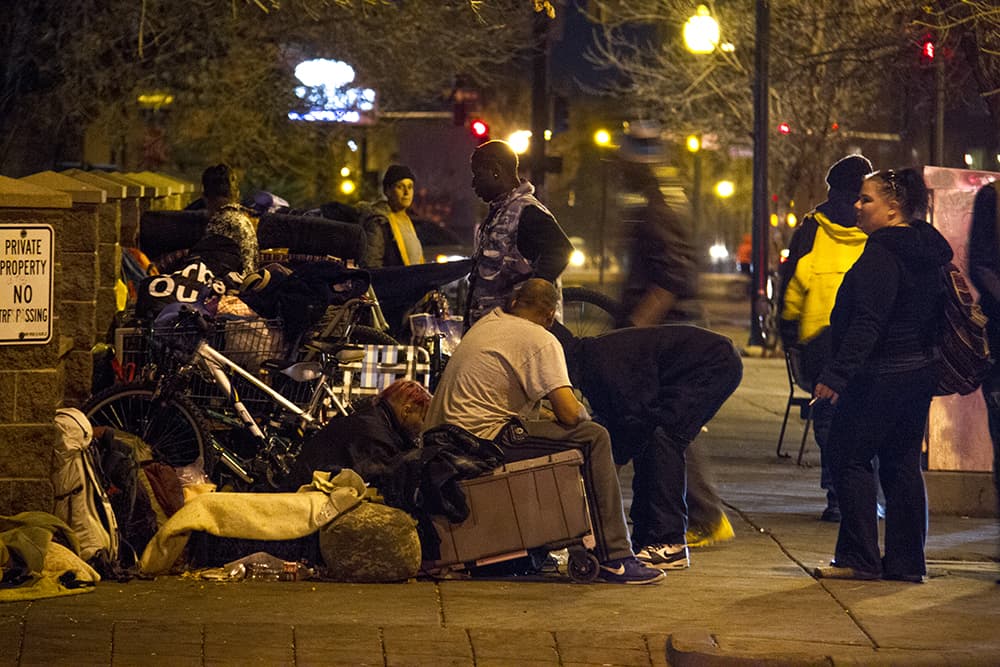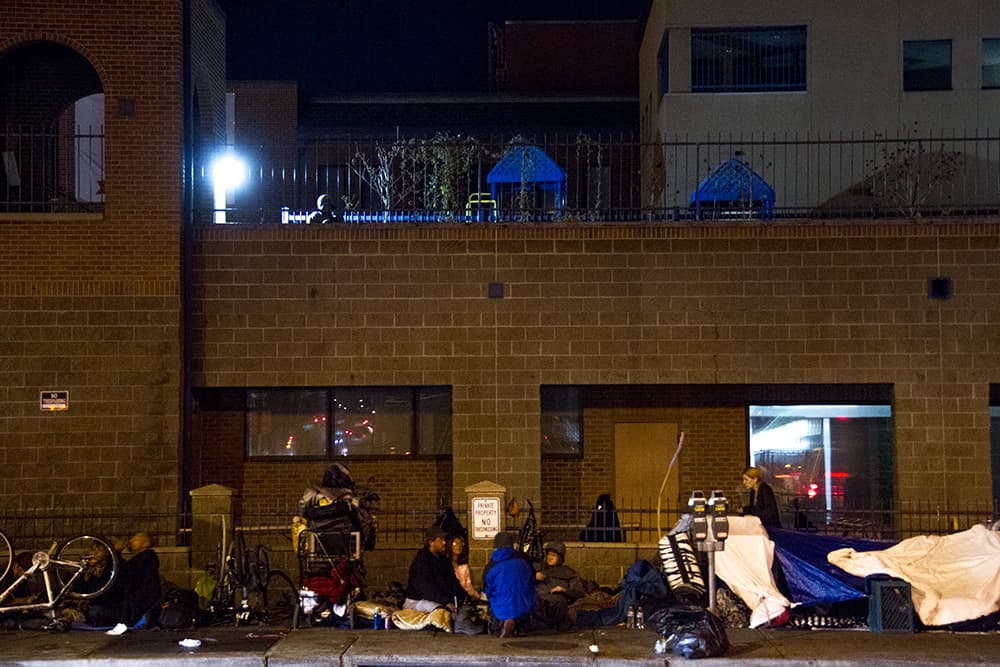The city's effort to clear people from Broadway in Ballpark did not stick this time. A day after city crews cleared personal belongings and litter from the sidewalk, scores of people returned to set up camp again.

It was a coordinated action, according to the homelessness advocacy group Denver Homeless Out Loud:
"Today, November 16 2016, 12:30pm over a hundred homeless people marched across the street and set back up their make shift 'homes' of shopping carts, tarps, and the like back up on the blocks of Lawrence, Broadway, and Park Ave. Right now over a hundred people have won back these streets for all those in need to survive together," the group posted to its website.
" ... Homeless people have been living on these blocks right near the Mission, which has been sheltering people in this location since 1970, looking out for each other in order to survive for years."
DHOL says that the city has "increased its use of force," as the surrounding area has filled with wealthier people and new development. "Now after over a year of heavy sweeps, police presence, and continued city efforts to move people from these blocks homeless people are tired of being pushed around and are not moving along to nowhere anymore."
People also are fighting the sweeps through a lawsuit organized by attorney Jason Flores-Williams. The city says that it gives advance notice of each sweep, and attempts to put people in touch with appropriate services as it works.
What's next?
Denver might now use its "camping ban," a city law that allows police officers to ticket or arrest people for staying too long on public property.
"Yesterday morning police told the first people that they could not come back and sit down with anything other than their (clothes) -- meaning they would be enforcing the camping ban in this area so no one could survive there," DHOL said in its statement.
Police have used the ordinance to tell people to "move along" far more often in 2016 than in years past, as Chris Walker reported for Westword. However, they are not arresting or citing people any more often; they're instead asking them to move under the law.
The city law requires that officers first issue warnings and also attempt to connect "campers" with services. In fact, no people had been arrested under the ban this year as of May, Walker reported.














